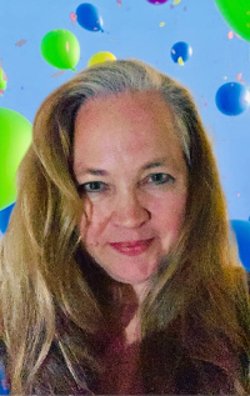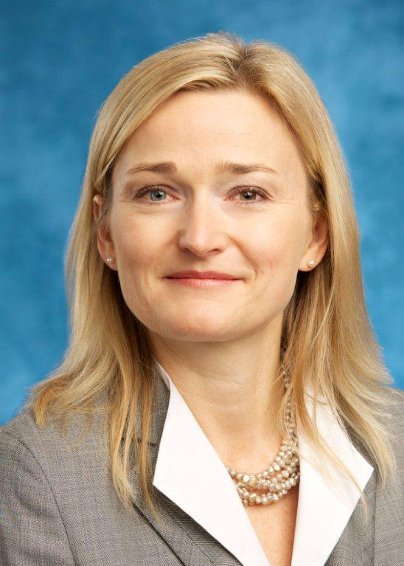FEATURED EVENT VIDEOS
Bearing Witness: Firsthand Accounts of Latvia’s Fight For Freedom - https://youtu.be/9cBQv3giEg
Dictionaries and Heritage: Tools of a Second Generation Translator by Kaija Straumanis - https://youtu.be/DzoTyEYyrgY
Traditional Latvian Folk Dances by Filadelfijas Dzirkstele (Philadelphia Spark) - https://youtu.be/ytgXRYo9_mE
EXHIBIT REVIEW ARTICLE
A Celebration of Latvia’s Independence
by Andra Zvargulis
Featuring the Launch of the American Latvian Association’s Nationwide Travelling Exhibit at the Philadelphia Latvian Society
Link to article: https://scarlet-codi-65.tiiny.site
The WE ARE LATVIAN Traveling Exhibit
Presented by the Latvian Museum, Rockville, MD in affiliation with the American Latvian Association
At the Philadelphia Latvian Society 531 N. 7th Street, Philadelphia
The Philadelphia Latvian Society, in association with the Philadelphia Council of Latvian Organizations, is pleased to announce the installation of a touring exhibit, We Are Latvian, which addresses 1,000 years of Latvian history. The exhibit opens on Saturday, November 16 at 2:00 PM, with a celebration of Latvian Independence Day. We are honored to begin our celebration with addresses by several honored guest speakers, including:
Mr. John J. Medveckis, Honorary Consul of Latvia for Pennsylvania Her Excellency Ambassador Elita Kuzma, Latvia’s Ambassador to the United States Mr. Martins Andersons, President, American Latvian Association
The exhibit will run through Saturday, November 30 at the following times:
Saturday, November 16: 2:00 PM - 6:00 PM
Sunday, November 17: 2:00 PM - 6:00 PM
Friday, November 22: 5:00 PM - 8:00 PM
Saturday, November 23: 2:00 PM - 6:00 PM
Sunday, November 24: 2:00 PM - 6:00 PM
Saturday, November 30: 2:00 PM - 6:00 PM
Starting from prehistoric times, the exhibit covers the centuries of invasions by powerful nations that led to a long, dark period of serfdom. Led in part by rebellious university students in the late 1800s, the Latvian people began to awaken to their true worth as valuable citizens, leading to a period of independence which Latvians then lost, fought for, and finally regained as the hated Soviet Union fell. The story of the dogged persistence of the resilient Latvian people, who held on tight to their heritage through centuries of challenge, is told through colorful, dynamic graphics and video programs that interpret topics like life in the post-World War II Displaced Persons (DP) camps, anti-Soviet protests in the United States and western Europe, and the dramatic “Baltic Way” a peaceful political demonstration which in 1989 brought two million people together in a human chain stretching 373 miles (600 km) through Estonia, Latvia and Lithuania.
FEATURED EVENTS
“Bearing Witness: Firsthand Accounts of Latvia’s Fight For Freedom” - November 16th 2:00pm
The Latvian independence day celebration and exhibit opening will include a program featuring first-person accounts of the climactic events that led to the downfall of the Soviet Union and the the restoration of Latvian independence. A panel discussion called “Bearing Witness: Firsthand Accounts of Latvia’s Fight for Freedom” will explore the complicated history of Latvia, a country strategically located in northern Europe, during the twentieth century. Hear personal accounts that led to the proclamation of independence on May 4, 1990, as panelists recount their experiences and celebrate that moment of triumph. The program’s moderator and panelists will be introduced by Janis Chakars, President of the Philadelphia Latvian Society.
“Dictionaries and Heritage: Tools of a Second-Generation Translator” - November 23rd 2:00pm
The Society’s guest speaker, Kaija Straumanis, will speak on "Dictionaries and Heritage: Tools of a Second-Generation Translator." Heritage speakers are in an interesting position when it comes to working with language—a position that offers many obstacles but also many advantages. When a literary translator can use the tools we can acquire (like a dictionary) as well as the tools we are born with (like our heritage), our work becomes a special kind of enriched and complex matter. Her lecture will draw from books like Forest Daughters (Meža meitas, ed. Sanita Reinsone) and Doom 94 (Jelgava 94, Jānis Joņevs) to look at the process of literary translation from a Latvian-American perspective.
Following the presentation by Kaija Straumanis, the folk dance ensemble Filadelfijas Dzirkstele (Philadelphia Spark) will perform traditional Latvian folk dances in the main hall.
After the performance, all attendees are invited to view the exhibit We Are Latvian. Younger members of the audience are invited to tour the exhibit with the project's interpreter, Ann Clausen, to discuss the storyline including the "What Would you Do" interactive feature designed for middle school and high school students.
ABOUT THE SPEAKERS
Saturday, November 16, 2024 2:00pm Panel Discussion
“Bearing Witness: Firsthand Accounts of Latvia’s Fight for Freedom”
PANELISTS:
Rita Laima Rumpetere-Berzins
Rita Laima Berzins studied art at Parsons School of Design in New York City before moving to Latvia in 1982. She experienced life under the Soviet regime, described in her 2017 memoir Skylarks and Rebels. Rita Laima is a published writer, translator, and illustrator. She lives with her husband Karl Altau in Maryland. Outside of work she engages in her creative pursuits, consumes books in English and Latvian, and stays in touch with her four children in the US and Europe.
Aija Celma-Evans
Aija Celma-Evans was born in Riga, Latvia. She is a graduate of the University of Latvia. Aija has worked at the University of Latvia, the National Library of Latvia and the US Agency for International Development (USAID). Currently she is working at the Foreign Service Institute (FSI), teaching the Latvian language and culture to American diplomats who will be posted to Latvia. A part of the FSI Latvian Section’s curriculum is a visit to The Latvian Museum.
Helena Viksnins
Helena Viksnins is Vice President, Education & Professional Relations, at the American Academy of Optometry. As a daughter of Latvian immigrants, she worked tirelessly in the 1980’s to ensure that Latvia’s unlawful fate of being occupied by the Soviet Union was known by the public at large. From 2011 to 2018 she directed the Latvian cultural heritage camp, 3x3 Katskili, in the Catskills of New York. She is a member of the Latvian folk ensemble Sudrabavots (Silver Spring), that shares Latvian polyphonic harmonies mostly within the DMV. Helena also programs radio programs at both WPFW and Takoma Radio (community FM radio station in Maryland/DC) with music by women, about women, but for everyone to enjoy.
Uve Hodgins
Uve Hodgins was born in Toronto, Canada, but has lived in Germany, Jamaica and now in Alexandria, Virginia. She lived in Latvia, her mother’s birthplace, from 1989 to 1994 and witnessed the country change from a Soviet occupied state to a fully independent democracy.
MODERATOR:
Renate Gravers
Renate Gravers is the Director of The Latvian Museum. She was born in Latvia in 1944 and came to the United States at the age of five, knowing no English. She has a BA with Honors from New York University (NYU). She is an interpreter of Latvian with the Office of Language Services of the US Department of State. Renate has been active in the Latvian community throughout her life.
Saturday, November 23, 2024 2:00pm Guest Lecture by Kaija Straumanis
“Dictionaries and Heritage: Tools of a Second-Generation Translator”
Kaija Straumanis
Kaija Straumanis is an award-winning translator from Latvian and German to English, and editorial director at Open Letter Books. Her published translations include works by Inga Ābele, Zigmunds Skujiņš, Jānis Joņevs, and Gundega Repše, among others. Her current projects include Forest Daughters (Meža meitas, ed. Sanita Reinsone), for which she received a 2020 NEA Literature in Translation fellowship, and The River by Laura Vinogradova (forthcoming 2025 from Open Letter Books), the latter being one of three titles in Open Letter’s 2025 Translator Triptych, which Straumanis also curated.
ABOUT THE LATVIAN MUSEUM
The American Latvian Association’s Latvian Museum was created originally in the 1970s in the city of Rockville, MD, located about a half hour outside of downtown Washington DC. The museum originally served as a place for exhibiting Latvian material culture and traditional textiles, along with a broad brush treatment of Latvian prehistory. The Latvian Museum was a Cold War era response connecting with Latvian culture and memory after immigration to the United States.
The exhibit was recently updated to emphasize Latvia’s image here in the USA as a free democracy, as an American ally, and as an NATO and EU member. The exhibit is designed to appeal especially to young Latvian-Americans, a particular target of the project.
For more information about the upcoming touring exhibit at the Latvian Society, contact Peter Dajevskis at peter.dajevskis@gmail.com.
For additional information about the development of the updated museum exhibit and special events held in Rockville, MD, please refer to an article written by the director of the Museum, Renate Gravers, published in the fall 2024 Annual Report of the American Latvian Association.
For inquiries about the Latvian Museum’s programs or to schedule a visit, contact Renate Gravers, Director at: museum@alausa.org.


















